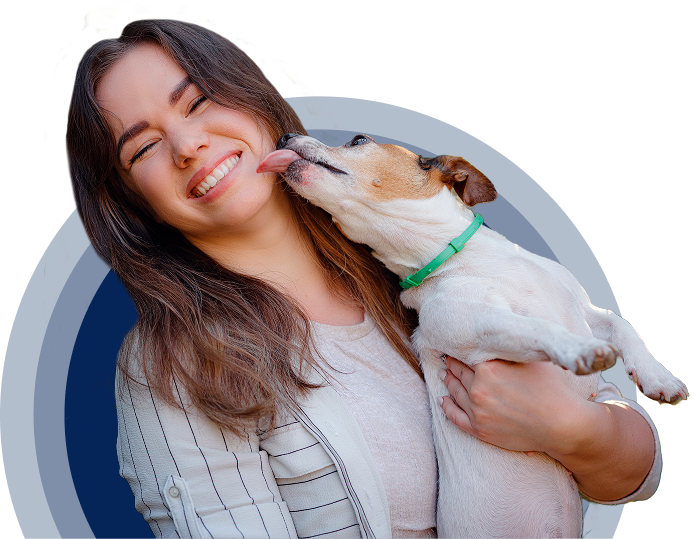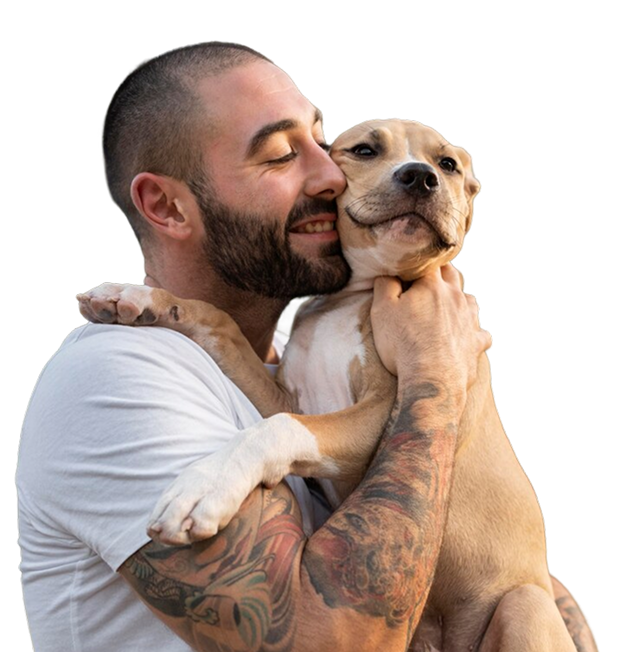Virgin Atlantic ESA Policy
Flying with Your Pet
Emma & Buddy connects you with compassionate support and trusted services that empower both you and your pet.

Virgin Atlantic Emotional Support Animal (ESA) Policy
Virgin Atlantic has updated its animal policies to align with U.S. and U.K. aviation regulations. Under the current Virgin Atlantic ESA policy, emotional support animals (ESAs) are no longer recognized as service animals. This change follows global airline standards that extend travel protections only to trained service dogs and psychiatric service dogs (PSDs) that perform specific tasks related to a passenger’s disability.
ESAs are now classified as pets and must comply with Virgin Atlantic’s pet policy, which includes health documentation, carrier requirements, and destination-specific rules. While ESAs can no longer travel free of charge in-cabin, eligible service animals continue to receive protection under international accessibility laws.
Virgin Atlantic Pet Policy
Pets Allowed in Cabin
Virgin Atlantic allows a limited number of small dogs and cats to travel in the cabin on select flights, depending on destinations and aircraft type. Pets must fit comfortably inside a secure carrier that can be safely stowed under the passenger’s seat during the flight.
Only one pet is permitted per passenger, and it must remain inside the carrier for the entire journey. The carrier counts as your hand baggage allowance.
Requirements
To qualify for in-cabin pet travel:
- Pets must meet all health and vaccination requirements for the destination country.
- The animal must fit comfortably in its carrier without protruding through the sides.
- Pets must remain under the seat in front of the passenger at all times.
- The pet must be at least 10 weeks old and travel with valid documentation issued by a certified veterinarian.
Restrictions
- Pets cannot be seated in exit rows, bulkhead seats, or any area without under-seat storage.
- Certain aircraft and destinations may not allow in-cabin pet travel due to temperature or import restrictions.
- Large animals must travel via Virgin Atlantic’s cargo program instead of in-cabin.
- Breed restrictions may apply for safety reasons, particularly for brachycephalic (short-nosed) breeds.
Fees
In-cabin pet travel fees vary depending on the flight route and destination. Passengers should check directly with Virgin Atlantic for updated pricing at the time of booking.
Virgin Atlantic Service Animal Policy
Under the Air Carrier Access Act (ACAA) and UK Civil Aviation Authority (CAA) standards, Virgin Atlantic permits only trained service dogs to fly in the cabin free of charge. This includes psychiatric service dogs (PSDs) that perform specific tasks to assist passengers with mental or physical disabilities.
Key Rules for Service Dogs
- Travel is free of charge, with no weight limit, provided the dog fits safely at the passenger’s feet.
- The service dog must be trained to perform a specific task linked to the passenger’s disability.
- Only dogs are accepted as service animals; other animals such as cats or birds are not permitted in this category.
- Passengers must submit required documentation at least 48 hours before the flight to verify the dog’s training, health, and suitability.
- Service dogs must remain well-behaved and under control at all times during the flight.
Required Documentation
Passengers flying with a service dog must provide:
- The Virgin Atlantic Service Animal Form (available through customer service).
- Proof of training from a recognized organization or trainer.
- Valid health and vaccination certificates.
- For U.S. routes, completion of the U.S. DOT Service Animal Air Transportation Form is also required.
How to Fly With Your Pet or Service Dog on Virgin Atlantic
Before traveling, review Virgin Atlantic’s ESA and pet travel policies to ensure your animal meets all eligibility requirements.
- Book early – Pet and service animal space is limited, so reserve during booking.
- Prepare documentation – Submit all required forms and veterinary health records at least 48 hours before travel.
- Prepare your animal – Familiarize your dog or pet with the travel carrier or harness before the trip.
- Check in early – Visit the Virgin Atlantic counter for service animal verification or pet check-in.
- During the flight – Service dogs remain at the passenger’s feet; pets must stay in their carriers under the seat in front of you.
Options for ESA Owners After Policy Changes
Even though Virgin Atlantic no longer recognizes emotional support animals as service animals, passengers still have options:
- Qualify as a Psychiatric Service Dog (PSD): If your ESA can be trained to perform specific tasks for a mental health condition, it may qualify as a service dog under accessibility laws.
- Travel under the pet policy: Your ESA can still travel in the cabin if it meets carrier and health requirements, though standard pet fees apply.
- Use ESA letters for housing: While ESA letters no longer grant in-flight privileges, they remain valid under the Fair Housing Act (FHA) for housing accommodation requests where pets are restricted.
Discover Emma & Buddy

Our mission is to provide reliable and accessible ESA letter consultations, empowering those with emotional and mental health challenges to experience the life-changing benefits of an ESA with confidence and empathy.
FAQs
What is Virgin Atlantic’s policy on emotional support animals (ESAs)?
Under the current Virgin Atlantic ESA policy, emotional support animals are no longer classified as service animals. Following updated aviation regulations, only trained service dogs that perform specific tasks for passengers with disabilities or medical needs are recognized as service animals. All other ESAs must travel under Virgin Atlantic’s pet policies and meet the airline’s travel requirements for pets.
Does Virgin Atlantic still accept emotional support animals in the cabin?
Virgin Atlantic no longer accepts emotional support animals in the cabin as service animals. However, passengers may bring small pets, such as dogs or cats, if they meet the airline’s pet policy standards. Pets must remain in a ventilated carrier for the duration of the flight and are not allowed to occupy their own seat.
Are there breed or size restrictions for ESAs or pets on Virgin Atlantic?
Yes. Only certain small breeds that can comfortably fit in an airline-approved carrier are permitted. Larger animals must travel as cargo through Virgin Atlantic’s Pet Travel Scheme. Breed restrictions may apply for safety and health reasons, and passengers are encouraged to confirm details before booking, as policies can vary by destination.
How do I notify Virgin Atlantic that I’ll be traveling with an ESA or pet?
You must inform Virgin Atlantic in advance if you plan to travel with a pet or a service dog. During booking or by contacting the airline directly, passengers can provide the necessary documentation and confirm their animal’s eligibility. Be sure to submit any required health or vaccination certificates early to avoid last-minute issues.
How far in advance should I book or confirm ESA travel with Virgin Atlantic?
It is recommended to arrange pet or service dog travel as early as possible—ideally at the time of booking. Some routes and destinations have limited pet capacity or require extra documentation for import. Virgin Atlantic advises submitting all forms and health certificates at least 48 hours before departure.
Are multiple emotional support animals allowed on the same flight?
Virgin Atlantic’s ESA policy permits only one pet per passenger in the cabin, provided the animal meets all carrier and size requirements. Multiple ESAs are not allowed as service animals, but passengers can arrange additional animals through the airline’s cargo service if needed.
See what our happy pet parents have to say…

Pat Christen

Great work it works well with getting house or apparment

Luis Valenzuela

“Go ahead! You won’t regret it. intuitive, easy, practical and personalized.”

J Kevin Wilkinson

This place was simply top tier, got my ESA certificate quickly and efficiently. Totally great and trustworthy!









